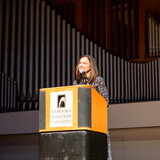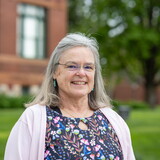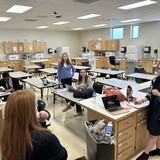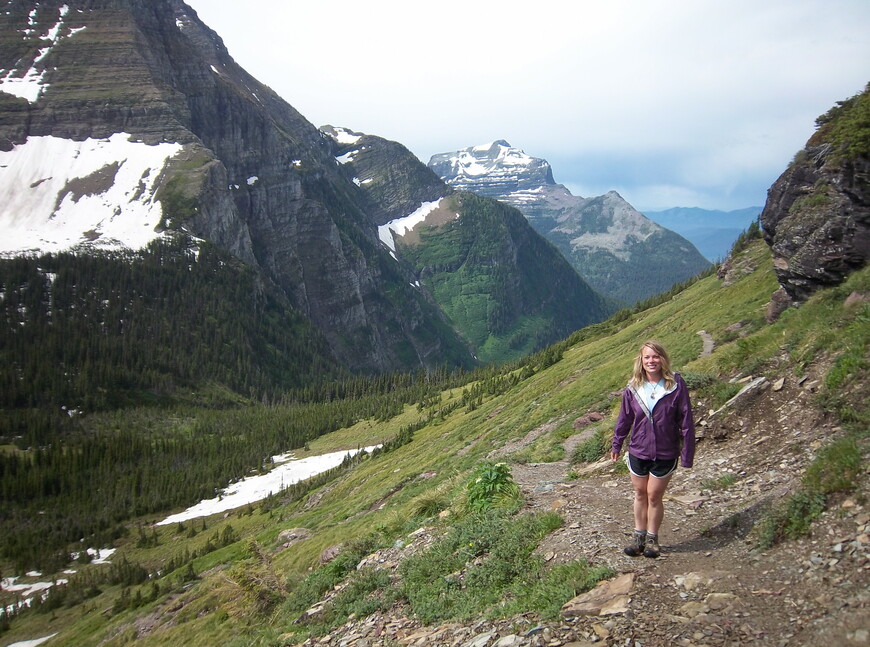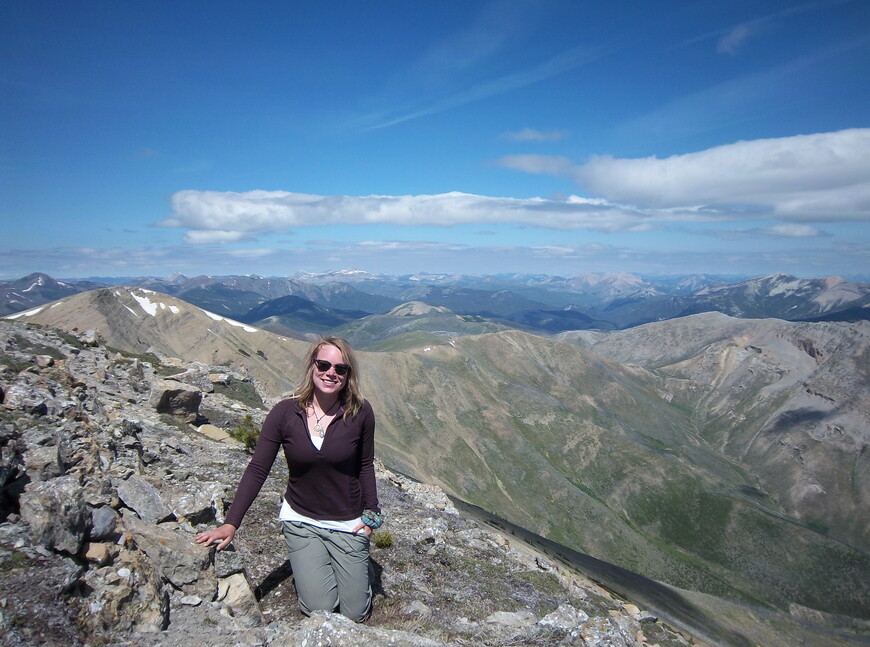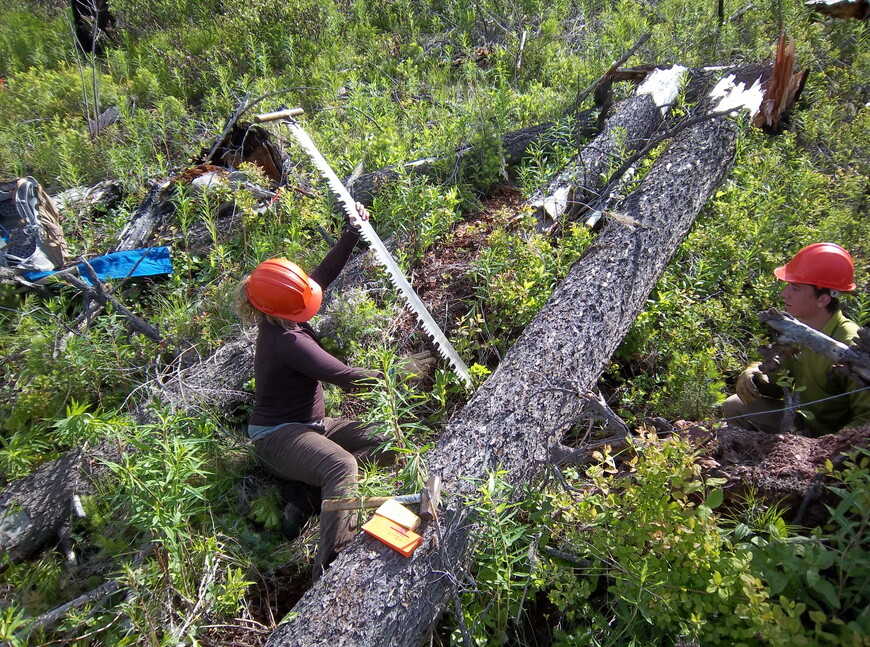Carolyn Collier has spent her summer in remote Montana.
Her typical day includes sharpening hand tools dating back to the 1820s, hiking 10 to 18 miles a day with a 40-pound backpack, and cutting up logs with a hand saw. She’s seen snow in July, she has minimal cell phone service, she often cooks over an open flame, and the nearest interstate is about 100 miles away.
Most wouldn’t call it paradise.
“It’s my little slice of heaven,” said Collier, a senior history major who is interning this summer at the Bob Marshall Wilderness Foundation.
Bob Marshall Wilderness is the largest wilderness area in the lower 48 states. It encompasses 1.5 million acres in western Montana. No motorized or mechanical equipment is allowed in the wilderness — not even bicycles.
“It’s the closest place to being back to how things used to be,” she said.
The Bob Marshall Wilderness Foundation is a non-profit organization dedicated to restoring and preserving the trail system. The Foundation works with the U.S. Forest Service to identify trail system improvements, and they rely on volunteers to help maintain the forest.
Collier splits her time between the Foundation office and the wilderness. In the office, she coordinates crews who lead volunteers into the wilderness, plots out itineraries, and sharpens hand tools.
In the wilderness, Collier leads groups of six to nine volunteers on a seven-day trip. They saw down logs and cut away brush blocking trails; they remove noxious weeds and they help install bridges. The work is physically demanding especially since chainsaws and other power tools are prohibited.
With no prior forest experience, Collier said the learning curve was overwhelming. She attended saw school, spent hours in safety classes, and familiarized herself with every corner of the 60-mile forest.
“It was very overwhelming at first,” she said. “But I’m finally in my comfort zone and it’s an enlightening experience.”
Collier learned of the internship through a student conservation organization. She initially hoped to intern in Colorado knowing she wanted to be surrounded by mountains. She applied for a position at the Foundation as a backup plan.
“But the more I learned about it, the more it sounded better and better,” she said. “It’s such a good fit for me. It’s right where I need to be.”
She has already agreed to work there again next summer following her college graduation. She also admits she is considering a possible career with the Forest Service or non-profit agency that works with the wilderness, although her career ambition is to be a history professor.
“Right now it’s hard to imagine doing anything else,” she said.
It’s also hard for her to imagine returning to Lincoln in mid-August.
“It felt weird being in Missoula (population 64,000) a few weeks ago,” she said. “When you’re not used to seeing a lot of people, that city seemed huge.”
“I’ve been to every corner of the wilderness and it’s been fun to live simply,” she continued. “It’s so hard to imagine leaving.”










